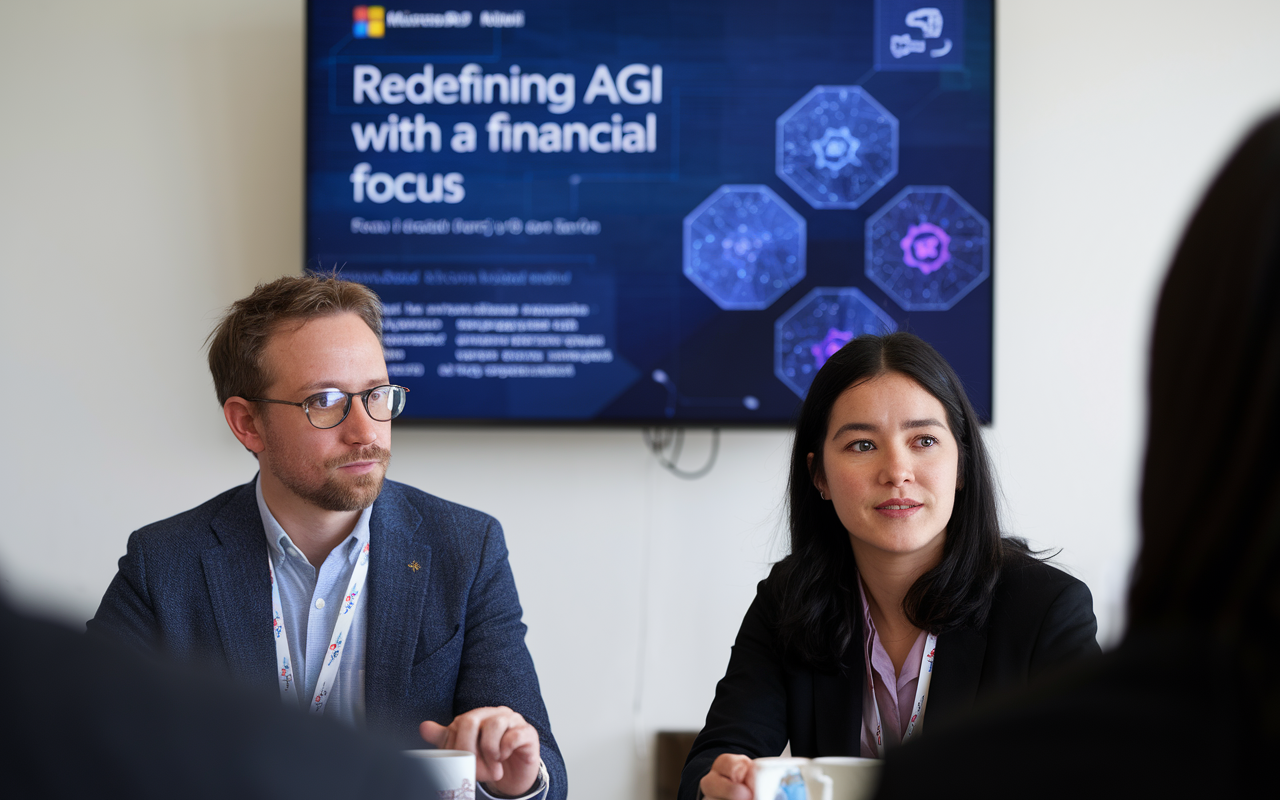Microsoft and OpenAI: Redefining AGI Through a Financial Lens 🚀
A recent report from The Information has unveiled a fascinating twist in the saga of artificial general intelligence (AGI) as defined by two of the foremost players in the tech industry: Microsoft and OpenAI. It seems the pathway to achieving AGI is less about comprehensive cognitive capabilities and more about hitting the high financial mark of $100 billion in profits 📈.
What is AGI, Really? 🤔
Traditionally, AGI is framed as AI that possesses the ability to understand, learn, and apply knowledge across a range of tasks as well as a human might. However, Microsoft and OpenAI have opted for a more metric-driven approach, laying out a financial threshold that OpenAI must meet before it can declare itself as having achieved AGI. 🚧
The Financial Framework 💰
According to the agreement signed last year, OpenAI's journey towards AGI is contingent upon generating substantial profits. As it stands, OpenAI is projected to incur significant losses in 2024 and is anticipated to reach profitability not until 2029. This extended timeline highlights just how far the company is from their financial target, particularly when viewed in conjunction with the vast capital losses they face.
What's particularly intriguing is that Microsoft could potentially lose access to OpenAI’s groundbreaking technologies if and when AGI is officially realized. This adds an additional layer of stakes to the already complex relationship between these two tech giants 🔗.
The Debate Rages On 🔥
The AI community is buzzing with discussions about the implications of this newfound financial definition of AGI. Some speculate whether OpenAI may hasten its declaration of AGI in an attempt to assert its market position against Microsoft. However, with the current profit-centric criteria, it appears that both companies may be on this journey together for the foreseeable future 🌌.
The recent unveiling of OpenAI's o3 model, which purportedly delivers better performance yet incurs higher operational costs, certainly complicates the situation further. It raises the question of whether advancements in AI can deliver profitable returns, or if, in fact, they are simply a costly endeavor that delays reaching the AGI milestone 🧩.
Conclusion: A Shifting Paradigm 🌍
This development highlights a pivotal shift in how we understand AGI—not only as a technological endeavor but as a financial goal. Microsoft and OpenAI’s framework indicates that the future of AGI may indeed be tied to financial viability rather than sheer computational prowess. As the landscape of AI continues to evolve, it will be fascinating to see how these definitions shift and how they impact the broader tech industry.
What are your thoughts on this financial definition of AGI? 🤷♂️ Share your insights below!
📝 Stay tuned for more insights on AI and tech developments!
[#AI #TechNews]

More Stories
Meta’s AR Ambitions and AI Safety: Insights from the Equity Podcast
Insight Partners Data Breach: A Wake-Up Call for Cybersecurity Awareness
Lovable’s Ascendancy: Anton Osika at TechCrunch Disrupt 2025